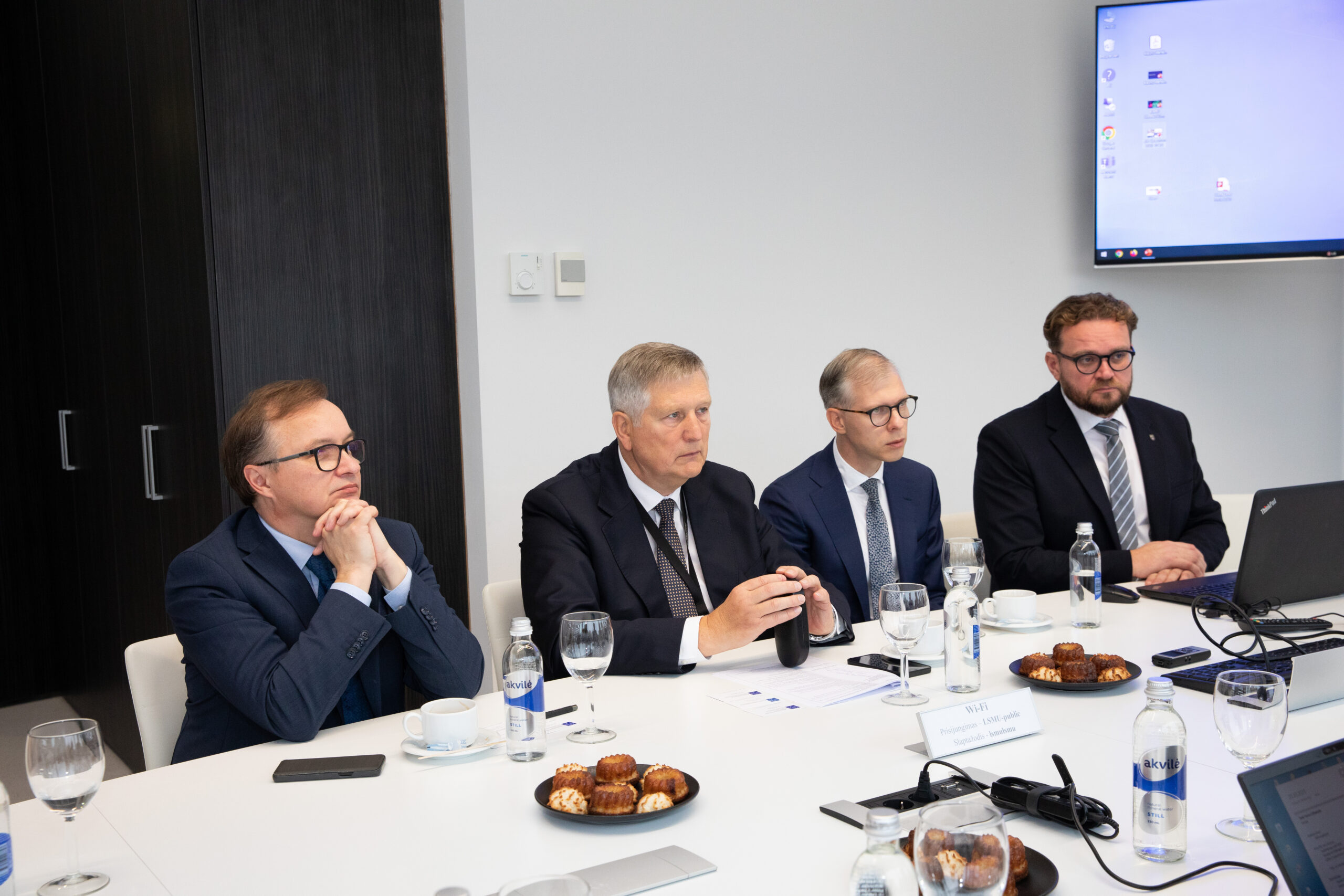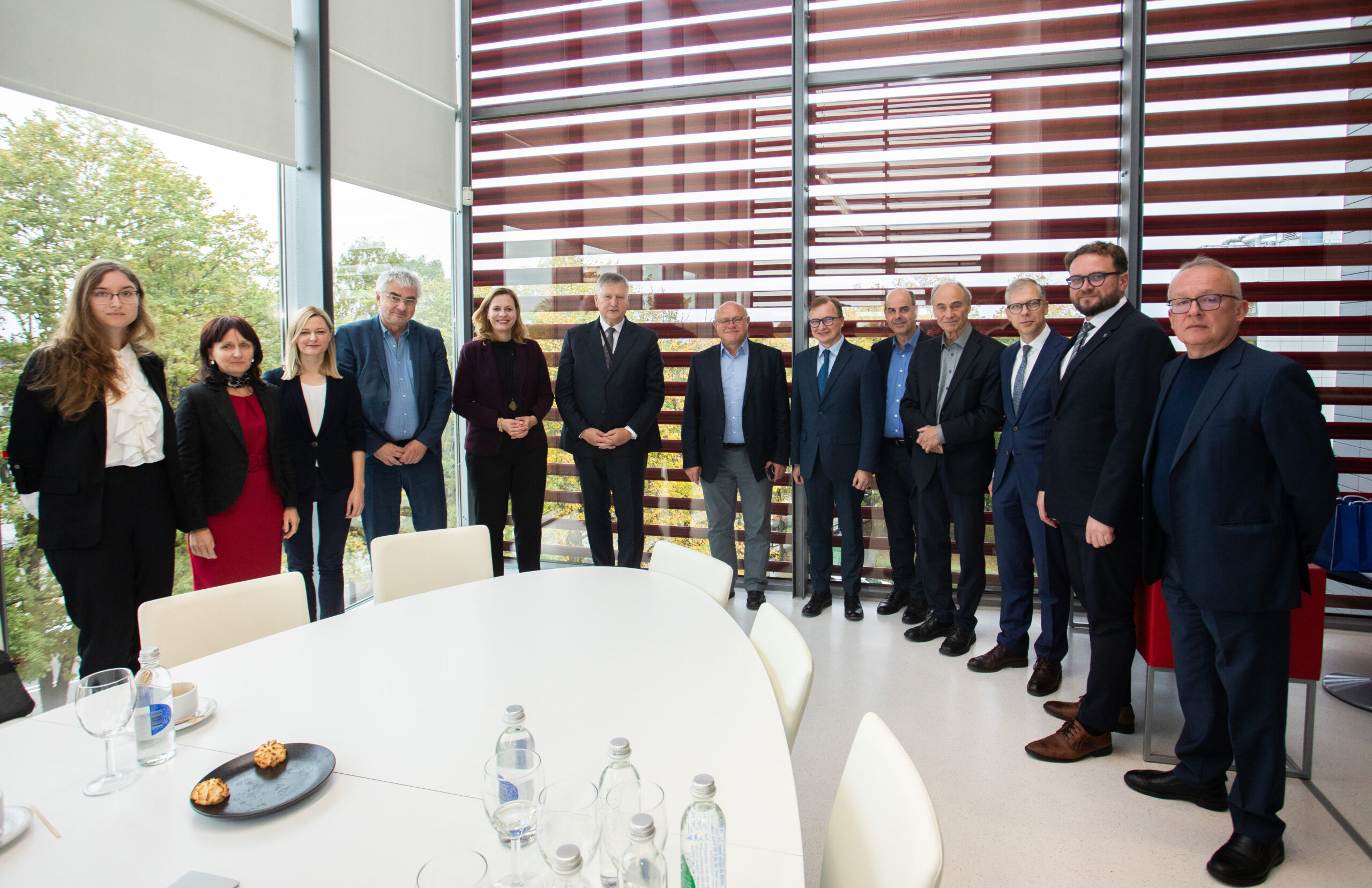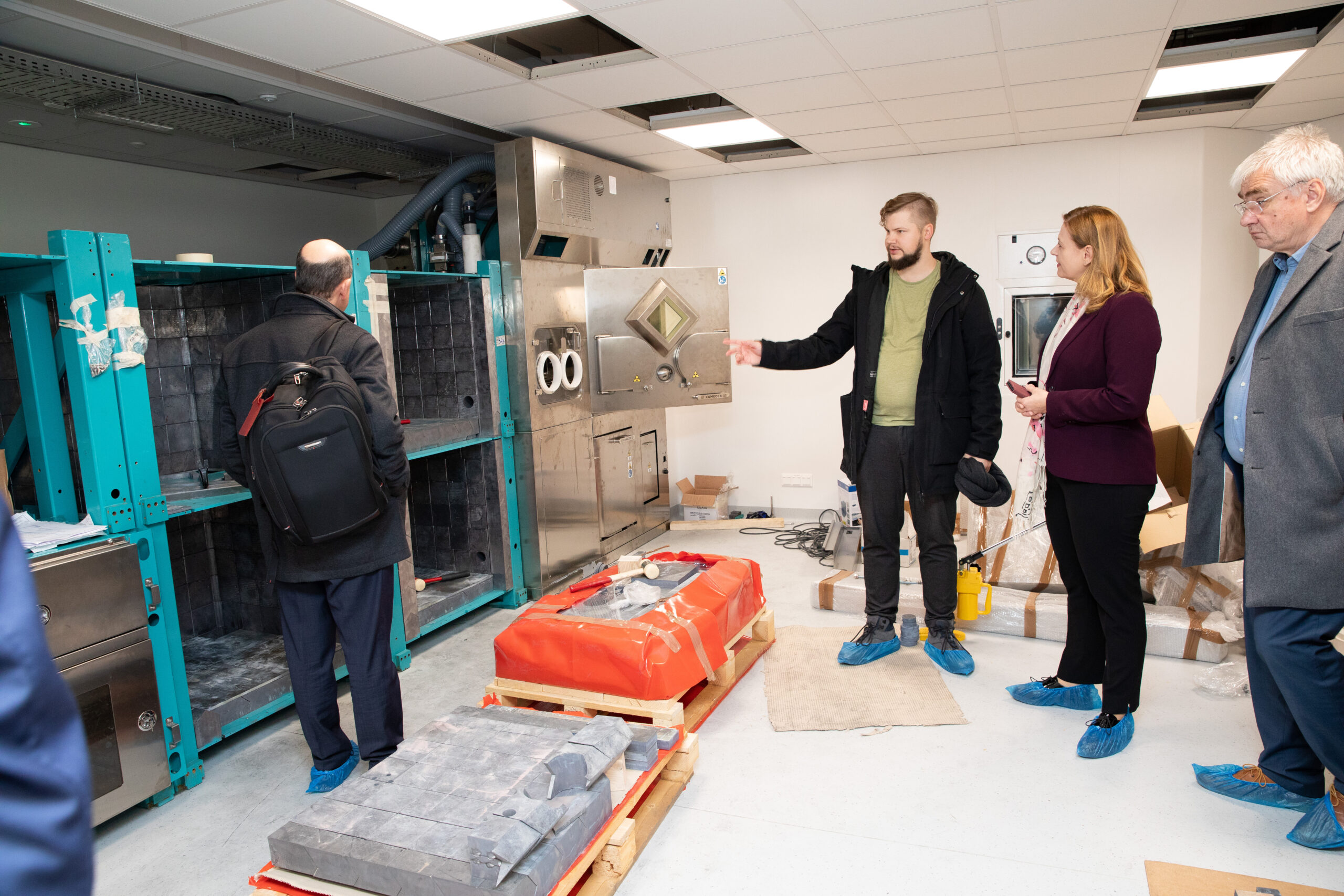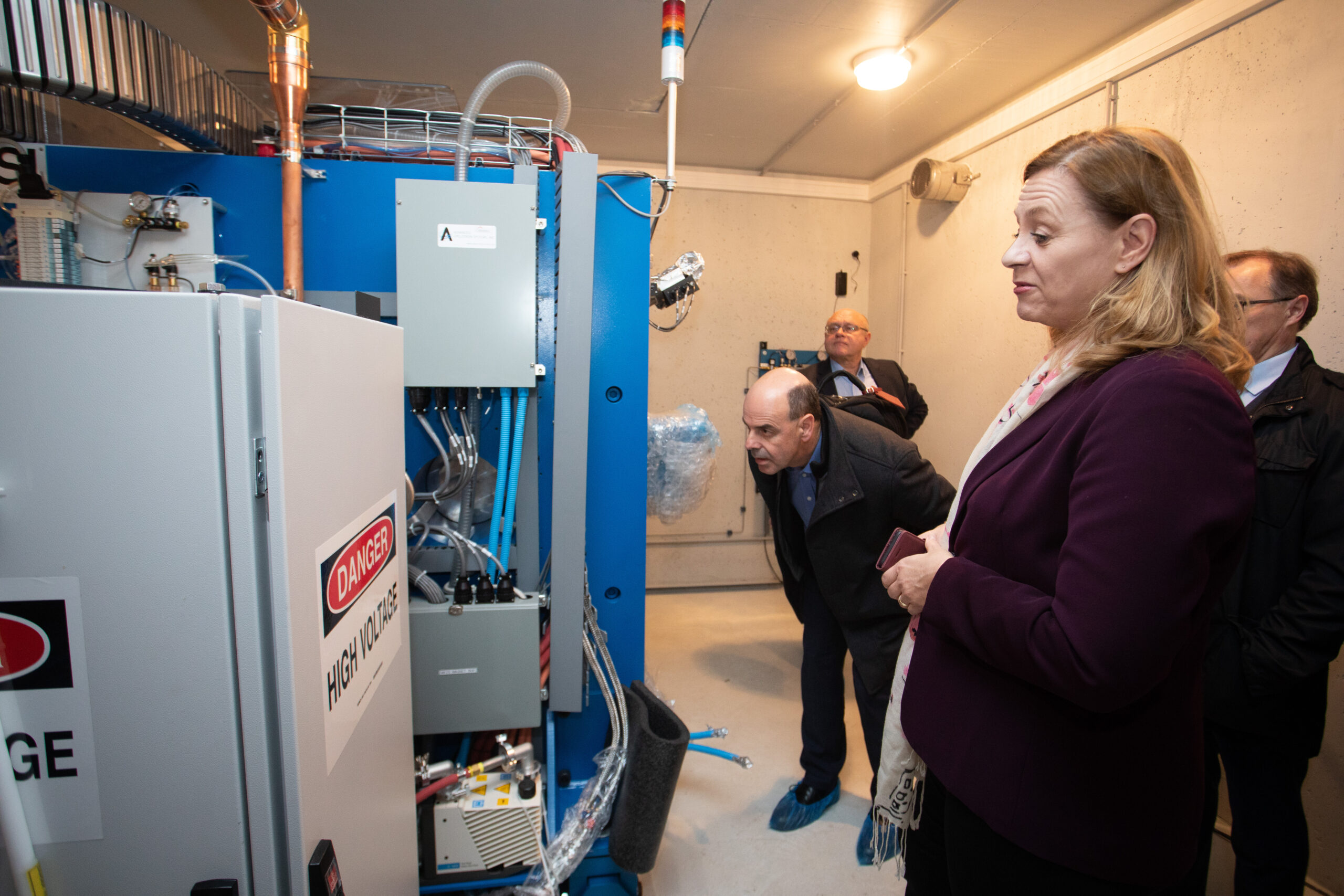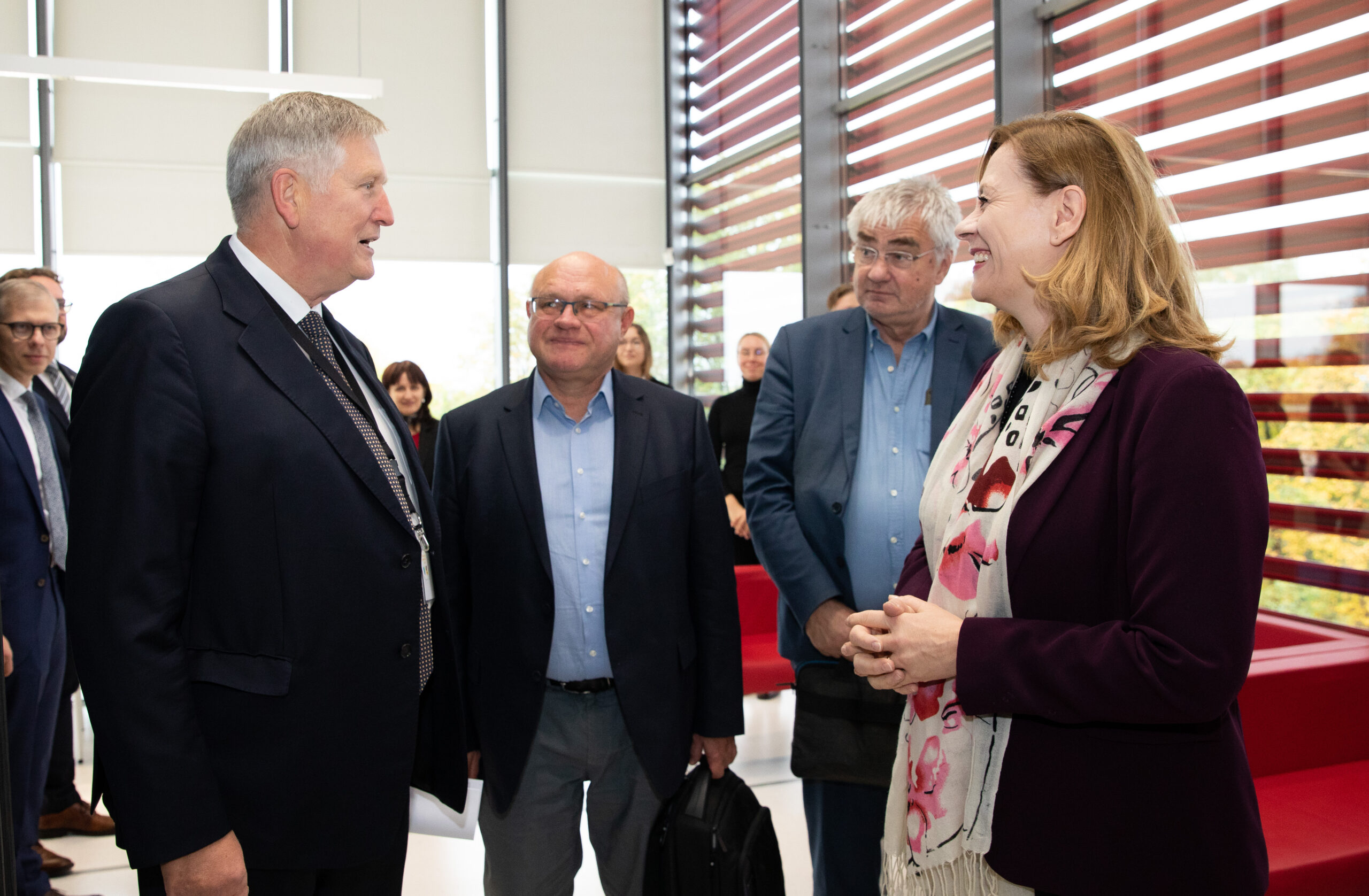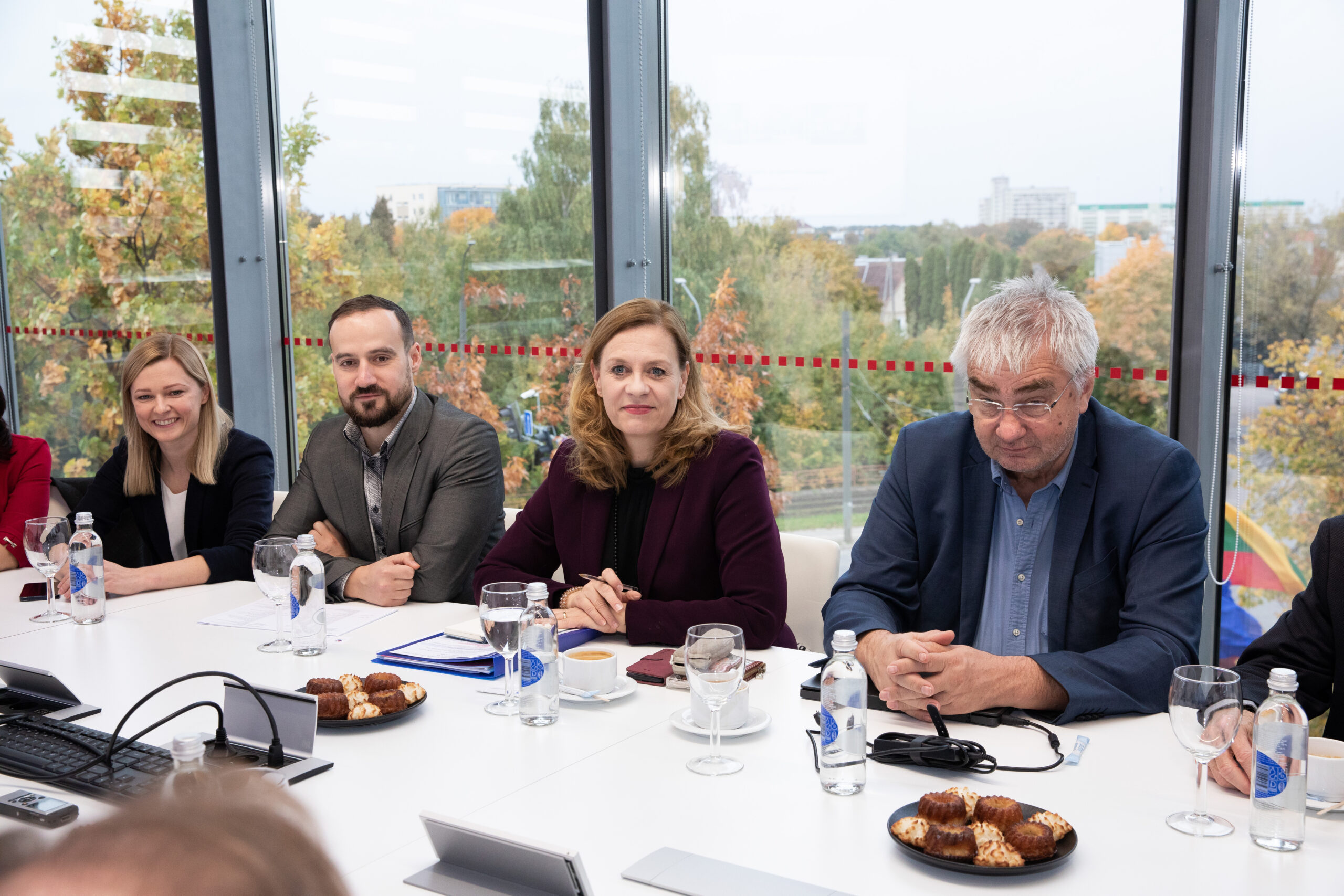CERN Experts Visit Kaunas: Noticeable Progress Made by LSMU
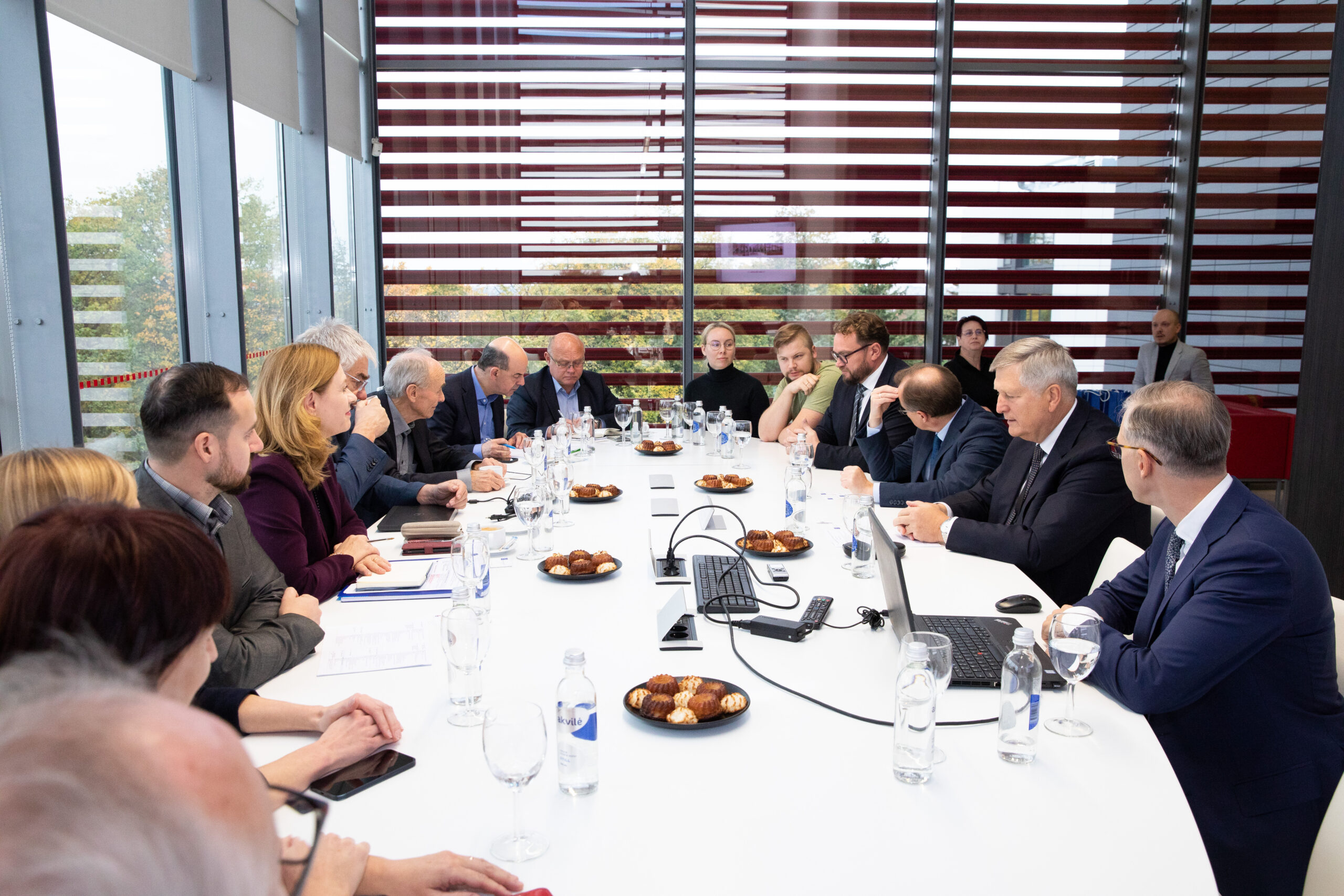
On 18-21 October, Lithuania’s most advanced research institutions were put to the test when representatives of the European Organization for Nuclear Research (CERN) visited the country. The visit was dedicated to the review of Lithuania’s associate membership with the organisation.
In Kaunas, the experts assessed the progress of research and innovation activities of the Lithuanian University of Health Sciences (LSMU) and Kaunas Clinics, visited the soon-to-be completed Nuclear Medicine Research Centre, and had a look at the cyclotron and other modern research equipment.
CERN is the world’s largest nuclear and particle physics laboratory situated in Geneva, Switzerland and is known to the general public for the world’s most sophisticated and largest complex of particle accelerators for fundamental research on the forces and particles of the Universe. The organisation works closely with researchers and investigators from all over the world.
Nuclear Medicine Research Centre Expected to be Operational this year
According to Prof. Donatas Vajauskas, Head of the Nuclear Medicine Unit at the Department of Radiology, the centre is already being completed at Kaunas Clinics, including the installation of a cyclotron, which will be used to generate radionuclides of different half-life, including short-lived ones, which are important for clinical medicine, fundamental biomedical research, and technology sciences.
The implementation of cyclotron in Lithuania will contribute to the establishment of a world-class research infrastructure and enable comprehensive research using this particle accelerator.
Future cooperation between LSMU and CERN is expected to develop further, including the continuation of activities under the Advanced Particle Therapy Centre for the Baltic States project, the development of infrastructure and further research projects in radiobiology, and the establishment and development of the Nuclear Medicine Research Centre. There is also the possibility of expanding into new areas such as dosimetry, computational science, and continuing education.
Prof. Rimantas Benetis, Rector of LSMU, highlighted one of the key advantages, namely, the facilities and multidisciplinary team, which is formed together with Kaunas University of Technology (KTU): “Although we are two universities, we work closely together. This is very important for all activities related to the cyclotron, nuclear medicine, other projects, including genetics research”.
Prof. Renaldas Jurkevičius, Director General of Kaunas Clinics, highlighted the new possibilities offered by the cyclotron facilities: the clinical activities will be based on the use of drugs needed by the patients and having a very short half-life and difficult or impossible to import from abroad. The possibility to develop nuclear medicine science will increase the competitiveness of the University and the Clinics, expand collaboration, and draw the patients who will be able to receive sophisticated exams and treatment faster.
Proton Therapy as the Next Step
“The facilities you have is already very good. Have you anticipated any further steps, such as training in research using the accelerators? This could be a transitional step to build more experience in proton therapy. If an entity would take such a lead in medical physics and specifically in accelerators in the Baltic region, the resources and research efforts would gain even greater focus. This could be one of the new directions for the future development of this field,” said Prof. Emmanuel Tsesmelis, Head of Relations with Associate Members and Non-Member States at CERN.
Prof. R. Jurkevičius noted that the next step – the accelerator and proton therapy – will probably also be taken in Kaunas, as a great deal of experience and expertise has been accumulated in the field of radiotherapy over several decades.
CERN Experts: Progress is Evident
Charlotte L. Warakaulle, CERN Director for International Relations and initiator of the working group, visiting Lithuania for the second time, was impressed by the progress made by LSMU and Kaunas Clinics over the past years, in particular, by the latest diagnostics, treatment options, and R&D.
“We are here to review Lithuania’s 5-year membership of CERN. This is the first review of this kind. We will present our findings to the Council.
CERN’s primary mission is particle physics. We study the fundamental building blocks of matter and the forces that govern them, to understand how they evolved in the fraction of a second after the Big Bang. To answer fundamental questions in physics, we have developed advanced technologies such as positron emission tomography (PET), which has since been widely applied in medicine.
Although these technologies are not at the core of what we do, they are very important and useful consequences of our research,” explained C.L. Warakaulle, who stressed that young researchers in the medical sciences are always welcome at CERN.
Major Projects Reviewed
The heads of LSMU and Kaunas Clinics, researchers and doctors presented to the expert group the most significant works of the R&D teams of LSMU and Kaunas Clinics involved in CERN-related projects.
Erika Korobeinikova, lecturer at the Oncology and Haematology Clinic, gave an overview of the comprehensive results of the partnership between LSMU and CERN: the collaboration has lasted 7 years, involved projects in proton therapy, radiotherapy and particle therapy, and provided new competences for the development of radiobiology research related to CERN.
To bring together Lithuanian research from different scientific fields and disciplines for conduction of research on topics of interest to CERN, the CERN-LT consortium was established by three Lithuanian universities – LSMU, KTU and VU – in 2022. LSMU is represented in this consortium by the Radiobiology Research Group.
According to Prof. Rasa Ugenskienė, Head of the Department of Genetics and Molecular Medicine, researchers at the Institute of Oncology have been conducting radiobiology studies on cancer cells for several years, exploring the possibilities to increase the sensitivity of these cells to radiotherapy.
Close links have been established between LSMU and KTU, research in medical physics and radiation safety is being developed, new radiation-resistant, shielding, and biocompatible materials are being developed, research into the materials and their modification by high-energy particle flows is being carried out, radio/biomarkers are being developed, and artificial intelligence tools are being integrated into these studies.
At the end of last year, LSMU became a member of the CERN Baltic Group (CBG), which brings together 13 research institutions from Latvia, Estonia and Lithuania to promote the development of innovative technologies and scientific research in the Baltic States. The partnership with CERN provides the CBG with the access to cutting-edge technology, expertise and resources to support research and development.
Lithuania became the first Baltic country to become an Associate Member of CERN in 2018. Now that Lithuania’s compliance with the criteria for associate membership and fulfilment of its obligations has been assessed, our country’s readiness to become a full member of CERN can be considered.

